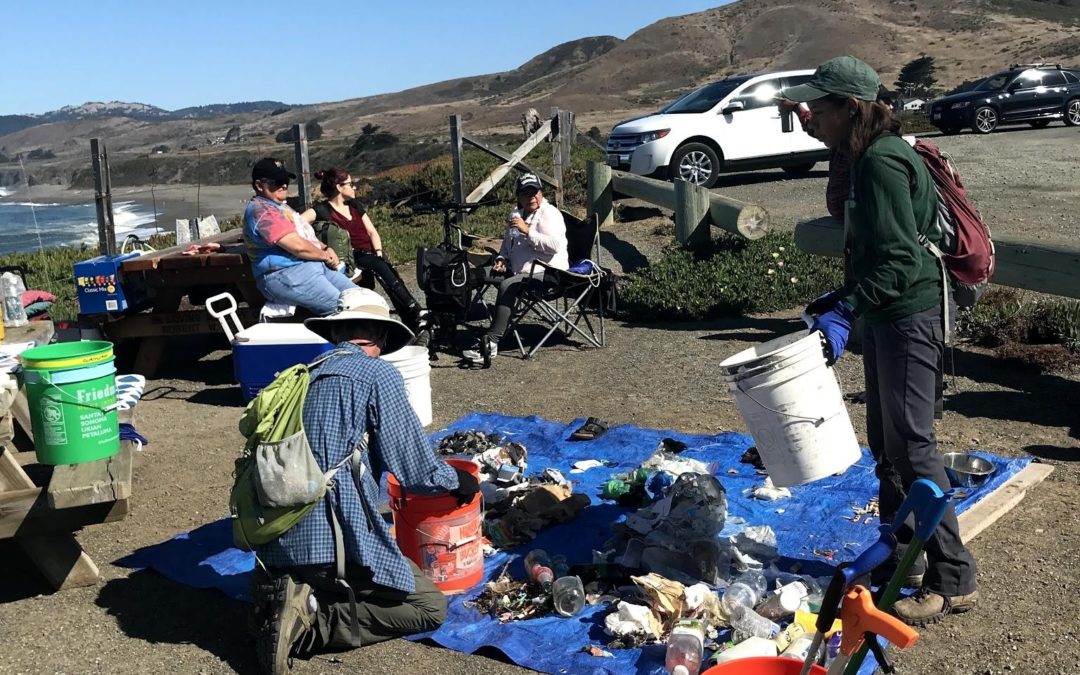THE FRANKLIN POST
FRANKLIN HIGH SCHOOL • 5405 SE WOODWARD STREET • PORTLAND, OREGON
At the peak of the COVID-19 lockdown, the world rejoiced as the environment saw a glimpse of improvement. Dolphins swam in the rivers of Venice, air quality improved, water pollution decreased in many parts of the world, and birds and animals alike thrived in their newfound peace. Animals found a home in places previously inhabited by humans, and a world catered to people allowed space for nature and other species. “At the beginning, the world paused and the environment thrived,” Izabella Wayland-Vasquez, a Franklin high school alumni, says.
However, as the pandemic lasted far longer than many of us expected, we watched as something positive quickly shifted to a negative.
With the need for at-home accessibility, constant sanitation, an increase in use of single-use plastics, takeout, Amazon shopping and overall lack of structure and regulations for businesses, we find ourselves at a point that could possibly be detrimental for our earth. As people returned to some sense of normalcy, air and pollution levels bounced back to damaging levels, animals retreated to their safety nets, and water quality quickly reverted back to what it was before. The positive progress made during the lockdown had proven to be temporary. As the world opens back up, we are left with another set of issues that could be even worse for the environment.
Cea Higgins is an environmental activist and advocacy coordinator for Coastwalk California trail beach clean ups and is also their retired executive director. Coastwalk is a state-wide non-profit organization, and they advocate for a balance between experiencing the coast and having stewardship and respect for the nature there. “It’s hard not to be negative because [COVID-19] has not been a positive thing for the environment. At all,” she says.
Higgins has been doing coastal conservation for over 25 years, and she has been doing clean ups, “long before people were really aware of plastic pollution and its detrimental effects on the ocean.” She spends her days at the beach, leading expeditions, recruiting volunteers, working in the office, organizing events for students and adults, and designing campaigns to ensure that the beach is well taken care of. Many of her hours are unpaid.
When COVID-19 hit, beach clean ups and volunteer organizations were severely impacted. Since indoor spaces were off limits because of the pandemic, everyone flocked to the beach and nature preserves. With them, they brought their single use plastics, disposable masks, and other miscellaneous trash, leaving untouched natural spaces covered in debris and popular beaches far worse than before. “There’s lots and lots of trash, PPE, human waste, and then all the single use to-go dining stuff, and I’m finding it in super pristine environments that a lot of people didn’t visit,” Higgins says.
In a time when volunteers were needed most, there were the fewest. Large group gatherings were restricted, so fundraising and recruiting volunteers was near impossible. “It’s been extremely difficult to substitute funding that we would normally get from these types of events… how do we make that shift?” says Higgins.
On top of that, in a time when people were afraid that the virus would spread over surfaces, picking up trash was the last thing anyone wanted to do. Even people who weren’t affiliated with an organization and simply cleaned up the beaches as their gift to the ocean were no longer comfortable risking their health to pick up litter.
With a lack of resources and excess trash, we are faced with a huge issue on the beaches and in natural preserves. “I haven’t seen this much trash on the beach in over 30 years,” Higgins states.
Last year, the United States spent nearly 11 billion dollars on cleaning up trash and debris across the U.S, which is ten times more than spent on trash disposal. An estimated 207 PPE (Personal Protective Equipment) items were littered on US roadways and waterways alone in early fall 2020. There is an increasing demand for PPE, which contributes to a significant amount of waste. In a poll of 104 people, 79% of them said that they consume more plastic now since the beginning of the COVID-19 pandemic in early 2020.
An excess amount of single use plastics and waste is just one problem we now face because of the pandemic. According to satellite data, in April 2020 alone, 64 percent more land was cleared than the same month the previous year which was the biggest year of deforestation in more than a decade. In 2020, deforestation rates increased by 9.5% from the previous year.
Keeping these forests alive is essential in the fight against climate change. Deforestation affects everything, whether it be the air we all breathe, temperature, thousands upon millions of habitats, or the water in our rivers. Megan Whisnand, the AP Environmental Science and Climate Justice teacher at Franklin says, “Forests are just so important. They clean the air, they clean the water. And you can just experience that by walking into a forest, it just feels cooler and calmer.” Forests create a sanctuary for everyone, whether it be animals or humans, or over 391,000 species of plants that the woods are home to.
Due to decreased monitoring and deregulation of businesses during the lockdown, our already large deforestation problem has grown and will continue to skyrocket unless businesses and organizations alike are monitored. “There’s a balance between individual responsibility, but then also the responsibility of our government, or the responsibility of these big corporations,” Whisnand states.
Just as we began to see progression in the fight against climate change, the pandemic seems to have pushed us back years. However, as we return back to a sense of normalcy in a post-pandemic world, we hold the keys to our future. Finally, the world seems ready to embrace real change, and as knowledge about the climate crisis is increasingly more supported and encouraged, we make space for progress. Although bleak, there is a sense of consciousness that people now understand in regards to the planet. Higgins says, “I think where the hope lies, is in the awareness. And I think people understand that it is critical. I see more and more people who want to be part of the solution.”
https://fhspost.com/covid-19s-climate-impact-and-the-repercussions-we-must-face/

